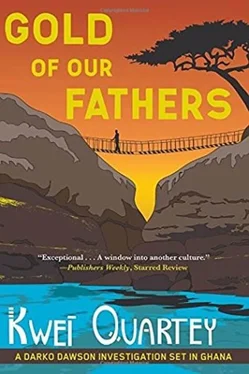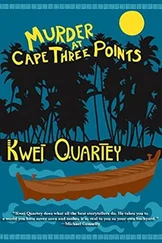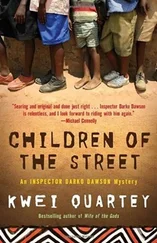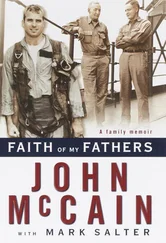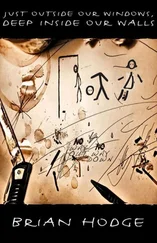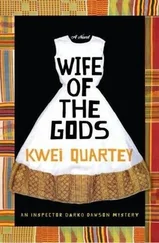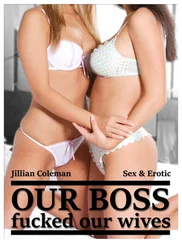“I would like to attend the autopsy with you,” she said. “Is that possible?”
“You’re asking the wrong person, I’m afraid. You’ll have to consult the mortuary officials.”
“I’ll do that. How tough are the autopsies for you to watch?”
“It depends on the case,” Dawson said. “The worst are those with advanced putrefaction, and floaters-dead bodies that have been in water for some time.”
“I suppose you’re used to them?”
“Never really get used to them-just my reaction to them.”
“Yes, I see. Very insightful, Chief Inspector.”
“Back to Chuck Granger. Do you know where he lives?”
“I know where he used to live, at least. Not sure if he’s still there, but there’s a bed-and-breakfast place in the Ahodwo area of Kumasi called Four Villages Inn. It’s internationally famous.”
“Oh, yes,” Dawson said as he remembered passing it on the way to Lian’s house.
“A Canadian man, Christopher Scott, and his Ghanaian wife own it. She’s absolutely adorable, but he’s something of a nutcase. Obsessed with short-term tourist visas.”
Dawson shrugged. “I don’t even know what those are.”
“Nor do you need to,” she said. “It affects him because he’s in the hospitality industry. His hotel is quite unusual.”
“You’ve stayed there before?”
“Yes.”
Dawson imagined Four Villages would be expensive-for him, anyway, but he was certain Helmsley had money. She had an air about her. “Do you live in the UK?”
“About three-quarters of the year, and the rest in Accra, usually. You’ve heard of the Helmsley Company?”
“I can’t say I have.”
“Belongs to my father-men’s and women’s fashion clothing. You’ll see the line in any mall in Accra or Kumasi.”
Which is why I haven’t seen it . Dawson didn’t spend much time in malls. Christine and the boys, to some extent, but not him.
“Where did you go to school?” he asked.
“Primary school here in Ghana, secondary school and university in England.”
He had guessed it. She had hot Ghanaian blood chilled by the frigid UK. “Do you speak any Ghanaian language?”
“My Twi isn’t bad.”
He nodded, but his mind was already moving onto something else. “Did your cameraman take pictures of the areas adjacent to the crime scene?”
“Yes, why?”
“I’m looking for tracks-excavator tire tracks-particularly leading from the crime scene area to Chuck Granger’s site.”
“All right. Well, let’s check and see.”
She had arranged all her laptop photos in logical, alphabetical order. She was exceptionally organized.
“What about this one?” she asked, stopping at a panorama that included Granger’s excavators on the site. “I can crop out this area of the terrain between Granger’s and Liu’s site to make it larger.”
She did that, and they both stared at the soil pattern in the photograph.
“See anything?” she asked.
“Not a thing.”
“Are you thinking Granger was trespassing on Liu’s site?”
“Maybe,” he said, not mentioning Kudzo’s observation that an excavator could have buried Bao Liu very quickly. He stood up. “I must get going now. Thank you for your help.”
“Likewise, Chief Inspector Dawson. We have a video piece coming out on the Guardian website in the next few days. I’ll send you the link.”
“Thank you very much.” As he left, he wanted to tell her, “Please be careful,” but he thought he had expressed that enough. She had made her point: she was tough, and she didn’t need to be told her job just because she was a woman.
Dawson got back to Obuasi by just before two in the afternoon. In transit, he had tried to call Sergeant Obeng and was annoyed that the man did not pick up or return the call. It was true that network problems plagued telephone calls, but people used that excuse all too often.
When Dawson arrived at district headquarters, six or so civilians were playing the waiting game around the entrance to the charge office. The constable at the front desk straightened up as Dawson entered.
“Good afternoon, sir.”
“Afternoon.”
Behind the desk, a corporal was sitting in a chair dozing off. Dawson ripped a page out of his notebook, balled it up and lobbed it accurately at his head. He jerked awake and jumped up, almost losing his balance.
“Morning, massa,” he stammered, mortified.
“It’s afternoon, corporal,” Dawson said. “Find something to do that doesn’t involve sleeping on the job.”
“Yes, sir.”
“Who is in charge today?”
“Inspector Kwarteng, sir.”
“Where is he?”
“Please, he has gone out.”
Dawson frowned. “Gone out to where?”
The corporal was sheepish. “Please, I don’t know.”
“Have you noted his departure in the diary?”
“No, please.”
Dawson was getting irritated. Does anyone take any responsibility for anything around here? “What about Detective Sergeant Obeng? Is he here? Or am I asking too much?”
“Please, I think he is in the back.”
Dawson grunted, slipped to the rear of the charge office and turned right down the dim corridor toward the jail, but he stopped and reversed direction because he thought he heard someone crying out behind him. As he drew closer, he realized it was coming from inside the storeroom. He opened the door a crack, at first seeing only mops, brooms, and cleaning supplies.
“Why are you lying?” one voice said softly. It belonged to Sergeant Obeng. “Eh? You think I don’t know what is a liar? Take your hands away from your head. I say, put them down .”
Dawson heard the sharp slap that followed and the corresponding yelp from the second person-Kudzo. Dawson opened the door fully. Startled, Obeng jumped and swung around, breathing heavily. The weapon in his hand was a wooden ruler which, as Dawson remembered all too well from his schooldays, could deliver quite a sting. Kudzo was cowering on the floor, holding his hands in front of his head in the classic defensive posture.
“What’s going on?” Dawson said quietly.
“Please,” Obeng stammered. “Please… I…”
“Wait for me at the charge office.”
“Yes, sir.” He squeezed past Dawson like a guilty dog.
Kudzo sat up partially with an imploring look. “Please, I beg you. Massa, I beg you.”
“Stay right there,” Dawson said, getting out his phone. He snapped one photo of Kudzo sitting there in distress, and then moved forward. “Lift up your face and look at me.”
He was in tears, but his face appeared untouched.
“Don’t move,” Dawson said, and snapped another picture. “Now stand up and lift your shirt.”
Kudzo did so. Dawson could see the welts. “Just as I thought. Is this where he was hitting you?”
“Yes, please. This side of my body. And on my head.”
But deep black as Kudzo’s skin was from hours in the sun, Dawson had difficulty making out the bruises in the dim light of the storeroom.
“Come with me,” Dawson said.
He took Kudzo to the court office.
“Stand by the window,” Dawson said.
The bruises were more visible now, though barely. Dawson took several photos. The results could have been a little more obvious, but it was the best he could do.
He put his head around the door and called for the constable to escort the suspect back to his cell in exchange for Obeng’s return.
The sergeant came in with his head down, unable to meet Dawson’s eyes.
“Have a seat,” Dawson said.
“Yes, sir.”
Dawson perched on the side of the table. “What were you trying to do?”
Читать дальше
